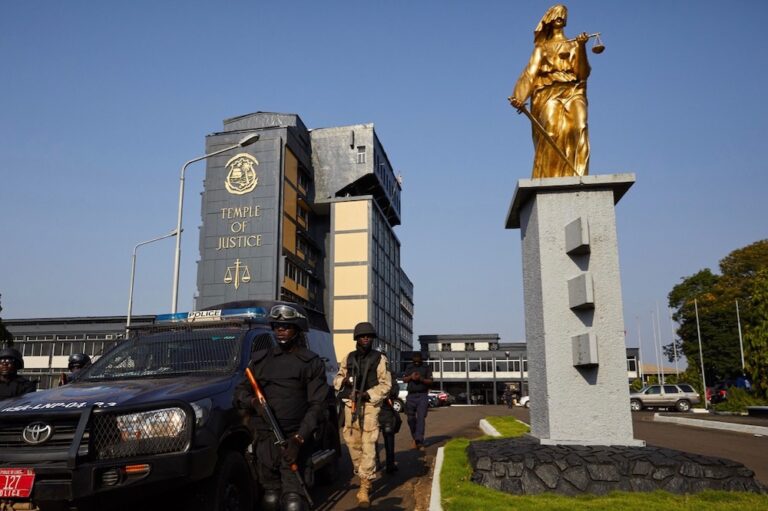(CEMESP/IFEX) – The following is a 5 January 2008 CEMESP letter to the Truth and Reconciliation Commission chairman: January 5, 2008 The Chairman Truth & Reconciliation Commission Monrovia, Liberia Mr. Chairman: We write to introduce the Center for Media Studies & Peace Building (CEMESP), a media development and peace building organization, which has been working […]
(CEMESP/IFEX) – The following is a 5 January 2008 CEMESP letter to the Truth and Reconciliation Commission chairman:
January 5, 2008
The Chairman
Truth & Reconciliation Commission
Monrovia, Liberia
Mr. Chairman:
We write to introduce the Center for Media Studies & Peace Building (CEMESP), a media development and peace building organization, which has been working especially to promote the free gathering and dissemination of news and information in the nation-building process in Liberia.
We welcome the announcement of the pending commencement of the Public Hearing component of the Truth & Reconciliation Commission (TRC), but like to particularly differ with requirements for the accreditation for journalists “wishing to cover the TRC Public Hearings.” CEMESP believes accreditation, especially when targeted at a given sector of the public, for a public event is unnecessary, unduly bureaucratic, discriminatory, and would eventually expose journalists to harassment. It goes without saying that accreditation goes hand in hand with dis-accreditation, and should not be required for any event that must necessarily be observed by all Liberians.
Unless the TRC can convince us that the accreditation is meant to provide special privileges for journalists covering the trial, CEMESP wants the TRC to cancel media accreditation to this “public hearing,” and permit all persons to attend without undue restrictions. As the TRC has also invited other citizens and residents like “marketers, traditional leaders, students and the public . . .” to the hearings, CEMESP believes that journalists should be accorded similar status, and not one that would eventually restrict their freedom in reporting the hearings.
CEMESP uses this medium to renew its fullest agreement with the TRC Process, including aspects of the public hearings that encourage “respect for one another” and discourage booing and jeering, as these could impact upon the hearing. CEMESP also agrees with requirements for guests to observe timeliness and restrictions on weapons at the venue.
We look forward to a timely and favorable response to these queries.
Sincerely yours,
Malcolm W. Joseph
Executive Director, CEMESP


